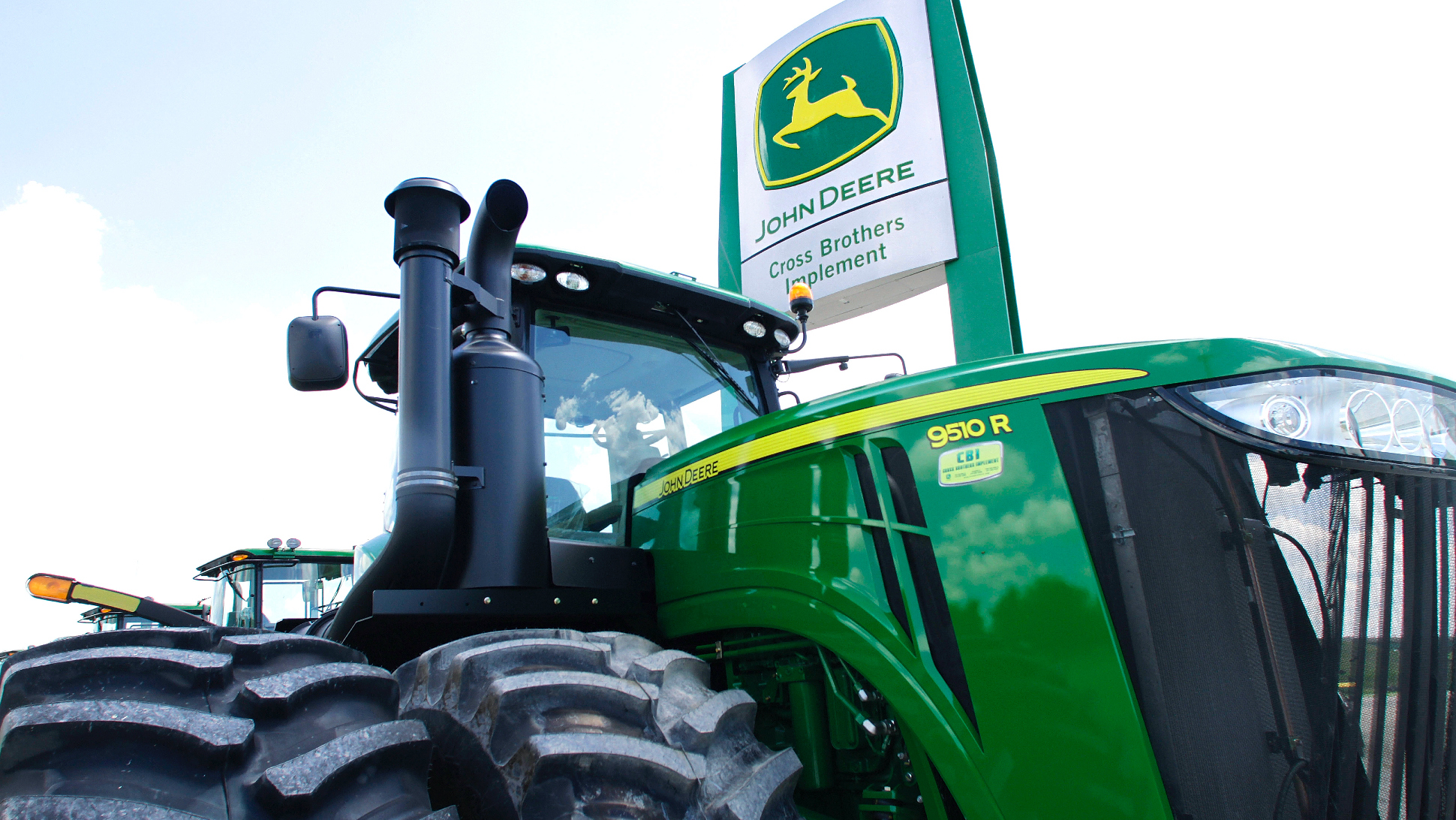

Usually the word “hacking” implies breaking into someone else’s data, but farmers are having to hack their own farm equipment just to keep it running, reports Freethink. Companies like John Deere won’t license out the software necessary to diagnose and fix their increasingly complex farm equipment, forcing owners to source that software online.
The fight over “right to repair” doesn’t just extend to totaled Teslas—it affects what makes it onto your dinner table, too. Crops won’t schedule themselves around a 40-mile repair trip to a specific company’s dealership. Mother Nature does not care about John Deere’s terms of service. Farmers say that they need to be able to repair their own ag equipment on their own terms—either themselves or through independent mechanics—as they have always done.

“In the old days, you needed a wrench, a hammer, and a pry bar,” engineer Kevin Kenney told Freethink. “Today, they have invented firmware all over these equipment systems, so you’ll need to have software just to get it started, activated and calibrated.”
That software is where the conflict lies. The companies that made it would rather keep it proprietary so customers have to return for repairs and maintenance. Owners who just need their equipment to work claim that when they bought a tractor, that should mean that they bought the whole tractor—including the right to fix their own stuff.

“In agriculture, we run things ’til they’re dead, and then we run them a little bit more after that,” farmer Tom Schwarz explained to Freethink. “We don’t dispose of things on the farm. We keep ’em running forever. It’s important to us as farmers in order to keep our costs down that when we buy something, we need to run it a long time to make it pay out,” Schwarz continued.
Equipment that’s in constant use also requires constant maintenance. Relying on dealer techs to diagnose issues that might cost little to nothing if dealt with on the farm runs contrary to the thriftiness and resourcefulness inherent in running a successful farm.
Thus, for the same reasons why some farmers are turning back to older, simpler equipment that’s easier to repair, other farmers are pirating tractor firmware just to keep their more modern equipment running, Freethink reports. Pirating farm equipment software currently exists in a grey area, as land vehicles were exempted from the Digital Millennium Copyright Act in 2015. Even though that means hacking your own tractor is not illegal, that doesn’t mean it’s particularly easy to do.
The pirated tractor firmware still goes through a black market of paid, invite-only forums, according to Freethink. Much of it comes from Eastern Europe, and the sites themselves can be hard to access. Once there, farmers can find the electronic data link servers, diagnostic programs, license key generators, speed-limit modifiers and even reverse-engineered cables they need to keep their equipment running.
Farmers would rather not deal with this black market at all, so they’ve become some of the loudest voices in fight to enshrine a formal right to repair act that would guarantee access to the tools and diagnostic systems necessary to fix their own stuff. At least 20 states including farm-heavy Nebraska have introduced right to repair legislation, per Freethink.
The fight isn’t over once a right to repair law is on the books, as car companies are demonstrating in their efforts to push back against Massachusetts’ recently passed expansion of its right to repair law. Still, right to repair advocates see each state that adopts such a law as building momentum in favor of independent mechanics and home tinkerers everywhere.
“It doesn’t really matter what the product is,” The Repair Association Executive Director Gay Gordon-Byrne told Freethink. “If Nebraska does a bill for farm equipment, people will be able to say, ‘they did it for tractors—why can’t they do it for refrigerators?’ This fight is all about ownership.”
Some farmers—having dealt with tech creep’s worst tendencies in their own industry—are more than okay with that.
“If a farmer out here through his own ingenuity can fix something, I think he should be able to do so,” Schwarz explained to Freethink. “And bluntly, I think that’s the way it should be whether we’re talking about tractors, cell phones or computers.”
Got a tip? Send us a note: tips@thedrive.com